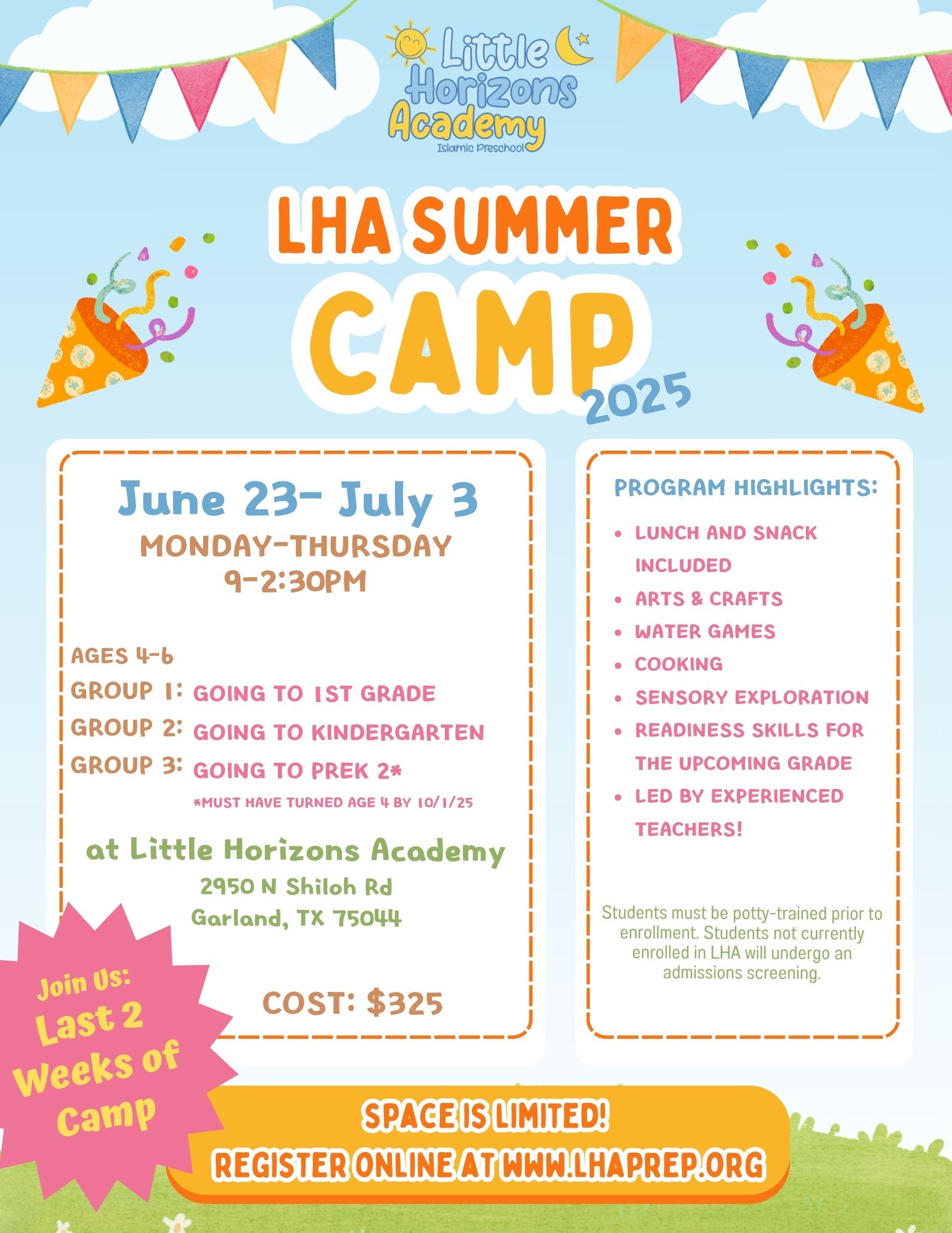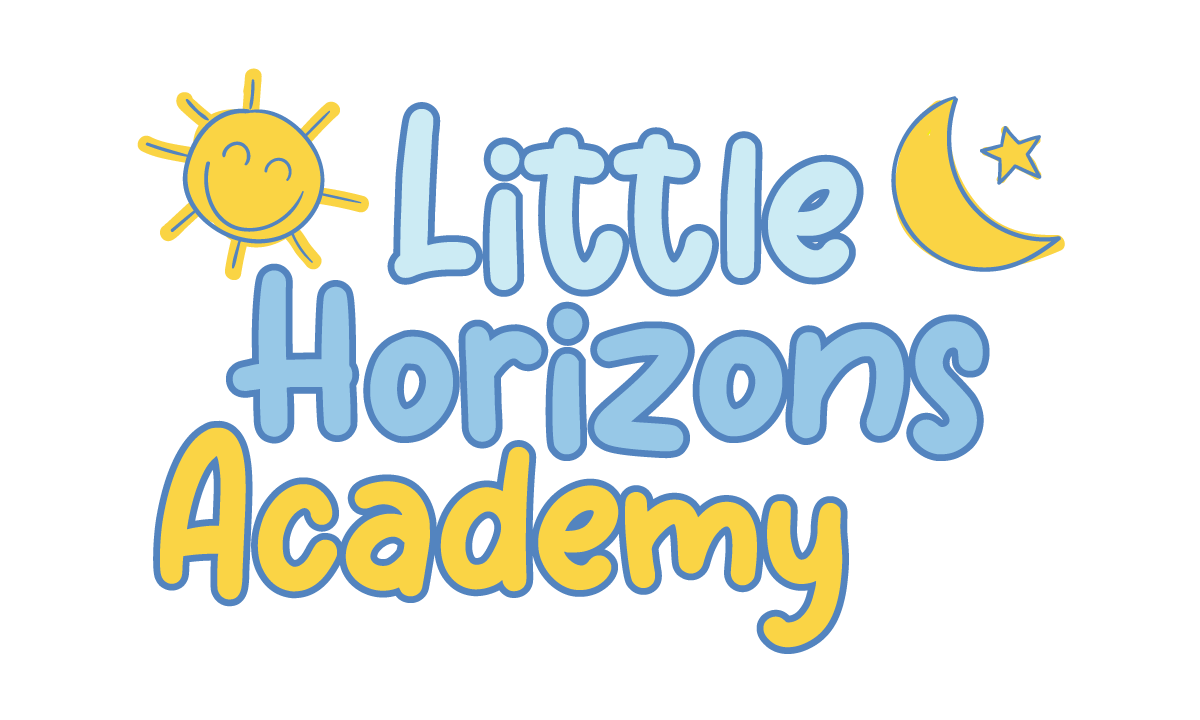
An exceptional Islamic preschool experience
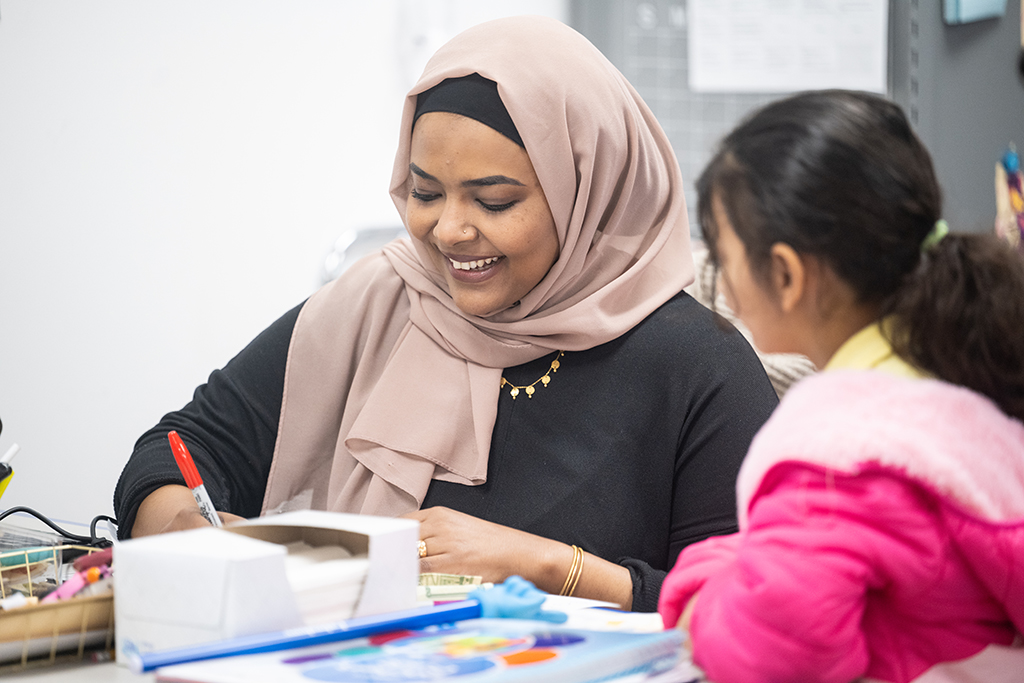
About Us
Mission
Your Subtitle Goes Here
We aspire to nurture rising leaders by providing an inclusive, exceptional, Islamic environment that empowers children to aim for the stars.
We aim to provide an exceptional Islamic preschool experience that fosters the spiritual, academic, and social growth of our young learners.
Grounded in the teachings of Islam, we strive to create a nurturing environment where children develop a profound love for Allah, embody Islamic values, and are inspired to become compassionate and responsible global citizens.
Our Preschool’s Mission encompasses
Your Subtitle Goes Here
1. Spiritual Nourishment:
We strive to cultivate a deep love and connection with Allah through age-appropriate Islamic teachings, stories of the Prophet (peace be upon him), and the recitation of Qur’an. We encourage children to develop a sense of gratitude, empathy, and respect for all of Allah’s creation.
2. Excellence in Education:
Our educational approach integrates Islamic principles with modern teaching methodologies. We aim to provide a high-quality early childhood education that fosters cognitive, emotional, physical, and social growth. By nurturing curious minds, we lay the foundation for lifelong learning.
3. Moral Values and Character Development:
Through Islamic ethics and moral teachings, we aim to develop strong character traits in our students. Honesty, kindness, compassion, and respect are values we encourage in all aspects of their lives.
4. Inclusivity and Diversity:
We celebrate the diversity of our community and promote an inclusive atmosphere where children from all backgrounds feel welcomed and cherished. We teach our students to appreciate and respect different cultures and beliefs, fostering a spirit of unity and understanding.
5. Parent and Community Engagement:
We recognize the crucial role of parents in their child’s development and education. We actively involve parents in their child’s learning journey, forming a strong partnership to support their growth at school and at home. We also engage with the local Islamic community, reinforcing the values of collaboration and shared responsibility.
6. Safe and Nurturing Environment:
The emotional and physical well-being of our students is of paramount importance. We maintain a safe, secure, and caring environment where children feel confident to explore, create, and express themselves freely.
7. Play-based Learning:
We believe that play is an integral part of early childhood education. Through play-based learning, we encourage imagination, creativity, and problem-solving skills, allowing children to discover and learn at their own pace.
Vision
Your Subtitle Goes Here
Confident and inspired young Muslims with a lifelong passion for learning.
At Little Horizons Academy, our vision expands by becoming a leading Islamic Preschool that nurtures young hearts and minds, preparing them to become exemplary individuals grounded in Islamic values, knowledge and character.
We strive to create a vibrant learning and exploratory community where children embark on a lifelong journey of faith, education, and service to humanity so they may achieve success in this life and the hereafter.


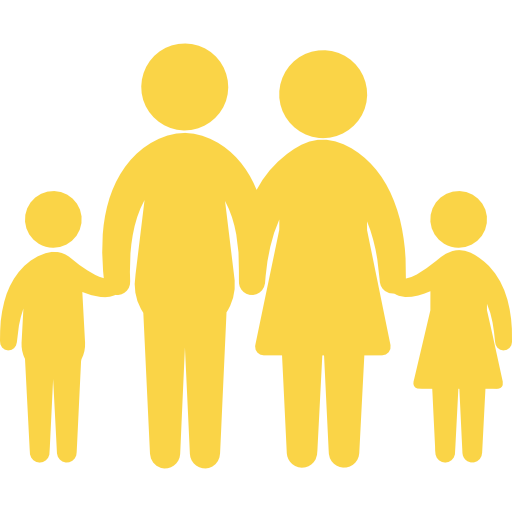


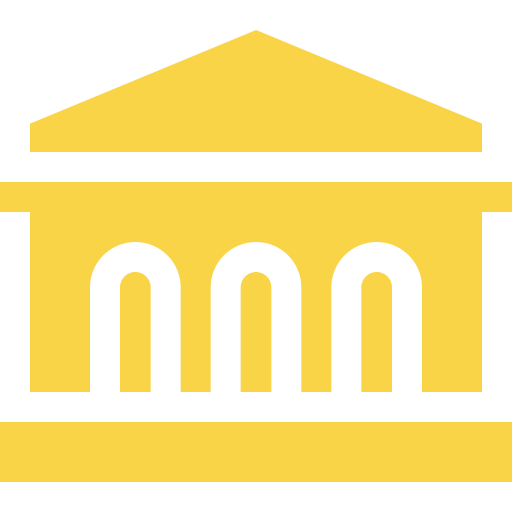
🔹 Islam is the final message revealed from God to mankind.
🔹 Our faith is a perfect and comprehensive way of life.
🔹 Our faith guides us in the areas of spirituality, education, science and technology, economy, politics, law, entertainment, social affairs, and all other aspects of our lives.
🔹 Our faith aims to secure happiness and prosperity to mankind in this life and in the hereafter.
🔹 Our faith aligns perfect unity between faith and practice. And a good Muslim is the one who believes in and implements the teachings of Islam.
🔹 Our faith emphasizes the importance of education and excellent education is prioritized.
🔹 All learners can learn, but they have varying learning styles
🔹 All learners are gifted, and our job is to figure out how they are gifted.
🔹 They have multiple and various kinds of intelligences and they develop at different rates.
🔹 They develop the ability to think creatively, critically and rationally.
🔹 They have a safe, healthy and Islamic environment, and they must have social as well as intellectual experiences.
🔹 They shall be well learned in Islam and greatly proud of it.
🔹 Learners feel good about the school they attend.
🔹 They feel their input is important and should develop a strong and balanced self-image.
🔹 They are capable of self-discipline if trained.
🔹 They understand, respect, and tolerate cultural, religious and ethnic differences.
🔹 They understand and utilize technology.
🔹 They participate in democracy.
🔹 Learners have intrinsic worth and dignity and deserve to be treated with respect and delicacy.
🔹 We are staff, teachers, and we are also Learners.
🔹 They actively support the Islamic and academic mission of the school.
🔹 They serve as role models.
🔹 Parents and school personnel unite as professionals within which students will experience the best possible developmental experience.
🔹 Parents are major stakeholders and their input to major decisions related to their child’s education is welcomed
🔹 They are made aware of teacher expectations, and they actively support teachers’ efforts.
🔹 They set high expectations for their children and positively reinforce their child’s efforts.
🔹 Parents have the responsibility to seek assistance if their child requires help.
🔹 Parents provide opportunities for their children to become self-disciplined.
🔹 Parents adhere to the policies set forth by the school.
🔹 Parents exhibit respectful and professional behavior in their interactions with school personnel.
🔹 Parents are treated in a professional manner.
🔹 Staff and faculty members are role models, for actions outlast spoken words in the young tender brains.
🔹 Staff members actively support the Islamic and academic mission of the school.
🔹 They are genuinely interested in the general welfare of students and display a positive attitude towards them and their learning.
🔹 They display initiative, operate with minimal supervision and possess a strong desire to be the best they can be.
🔹 Teachers set high expectations for both student learning and student achievements because expectations directly affect achievement.
🔹 Teachers utilize activities which promote student’s ability to think in a critical and creative manner.
🔹 Staff have input into decisions which affect them.
🔹 Teachers evaluate student performance in a fair, objective and consistent manner.
🔹 Teachers make full use of instructional time and result oriented.
🔹 Teachers work together and with the administration in a cooperative manner.
🔹 Staff carry out responsibilities cooperatively and efficiently when they share ownership.
🔹 Staff requires recognition, encouragement and opportunities for growth and development.
🔹 Staff is regularly monitored and evaluated.
🔹 Teachers address the needs, wants, unique characteristics and expectations of “each student.”
🔹 Staff provides regular and consistent feedback to both students and parents.
🔹 Teachers are the ultimate learning experience for students.
🔹 Administrators should cooperatively establish a vision and should disseminate that vision to all stakeholder groups.
🔹 They should be knowledgeable about child growth and development, curriculum construction and alignment, learning modes, supervision, and exemplary management theories and practices.
🔹 They should know how to manage, monitor and work with people.
🔹 They should focus on student learning and mastery, and they should encourage close monitoring of student achievement and the supplying of feedback.
🔹 Administrators should provide instructional support for teachers.
🔹 They should practice effective supervision, including growth target identification, monitoring, conferencing, feedback and evaluation.
🔹 Administrators are responsible for developing and maintaining a safe, orderly and healthy environment.
🔹 They should establish high expectations for behavior and achievement for students, employees and for themselves.
🔹 Administrators should be role models for teachers and students.
🔹 The governance of the Academy is a collaborative responsibility of Board members, school management, parents, staff and community.
🔹 Governance decisions are based upon a balance between the academic and human needs, wants and expectations of students.
🔹 Governance decisions are made on the basis of the strategic plan of the Academy to achieve the vision and the mission of the school.
🔹 Little Horizons Academy is affiliated with Brighter Horizons Academy and is a project of the Islamic Services Foundation.






🔹 Islam is the final message revealed from God to mankind.
🔹 Our faith is a perfect and comprehensive way of life.
🔹 Our faith guides us in the areas of spirituality, education, science and technology, economy, politics, law, entertainment, social affairs, and all other aspects of our lives.
🔹 Our faith aims to secure happiness and prosperity to mankind in this life and in the hereafter.
🔹 Our faith aligns perfect unity between faith and practice. And a good Muslim is the one who believes in and implements the teachings of Islam.
🔹 Our faith emphasizes the importance of education and excellent education is prioritized.
🔹 All learners can learn, but they have varying learning styles
🔹 All learners are gifted, and our job is to figure out how they are gifted.
🔹 They have multiple and various kinds of intelligences and they develop at different rates.
🔹 They develop the ability to think creatively, critically and rationally.
🔹 They have a safe, healthy and Islamic environment, and they must have social as well as intellectual experiences.
🔹 They shall be well learned in Islam and greatly proud of it.
🔹 Learners feel good about the school they attend.
🔹 They feel their input is important and should develop a strong and balanced self-image.
🔹 They are capable of self-discipline if trained.
🔹 They understand, respect, and tolerate cultural, religious and ethnic differences.
🔹 They understand and utilize technology.
🔹 They participate in democracy.
🔹 Learners have intrinsic worth and dignity and deserve to be treated with respect and delicacy.
🔹 We are staff, teachers, and we are also Learners.
🔹 They actively support the Islamic and academic mission of the school.
🔹 They serve as role models.
🔹 Parents and school personnel unite as professionals within which students will experience the best possible developmental experience.
🔹 Parents are major stakeholders and their input to major decisions related to their child’s education is welcomed
🔹 They are made aware of teacher expectations, and they actively support teachers’ efforts.
🔹 They set high expectations for their children and positively reinforce their child’s efforts.
🔹 Parents have the responsibility to seek assistance if their child requires help.
🔹 Parents provide opportunities for their children to become self-disciplined.
🔹 Parents adhere to the policies set forth by the school.
🔹 Parents exhibit respectful and professional behavior in their interactions with school personnel.
🔹 Parents are treated in a professional manner.
🔹 Staff and faculty members are role models, for actions outlast spoken words in the young tender brains.
🔹 Staff members actively support the Islamic and academic mission of the school.
🔹 They are genuinely interested in the general welfare of students and display a positive attitude towards them and their learning.
🔹 They display initiative, operate with minimal supervision and possess a strong desire to be the best they can be.
🔹 Teachers set high expectations for both student learning and student achievements because expectations directly affect achievement.
🔹 Teachers utilize activities which promote student’s ability to think in a critical and creative manner.
🔹 Staff have input into decisions which affect them.
🔹 Teachers evaluate student performance in a fair, objective and consistent manner.
🔹 Teachers make full use of instructional time and result oriented.
🔹 Teachers work together and with the administration in a cooperative manner.
🔹 Staff carry out responsibilities cooperatively and efficiently when they share ownership.
🔹 Staff requires recognition, encouragement and opportunities for growth and development.
🔹 Staff is regularly monitored and evaluated.
🔹 Teachers address the needs, wants, unique characteristics and expectations of “each student.”
🔹 Staff provides regular and consistent feedback to both students and parents.
🔹 Teachers are the ultimate learning experience for students.
🔹 Administrators should cooperatively establish a vision and should disseminate that vision to all stakeholder groups.
🔹 They should be knowledgeable about child growth and development, curriculum construction and alignment, learning modes, supervision, and exemplary management theories and practices.
🔹 They should know how to manage, monitor and work with people.
🔹 They should focus on student learning and mastery, and they should encourage close monitoring of student achievement and the supplying of feedback.
🔹 Administrators should provide instructional support for teachers.
🔹 They should practice effective supervision, including growth target identification, monitoring, conferencing, feedback and evaluation.
🔹 Administrators are responsible for developing and maintaining a safe, orderly and healthy environment.
🔹 They should establish high expectations for behavior and achievement for students, employees and for themselves.
🔹 Administrators should be role models for teachers and students.
🔹 The governance of the Academy is a collaborative responsibility of Board members, school management, parents, staff and community.
🔹 Governance decisions are based upon a balance between the academic and human needs, wants and expectations of students.
🔹 Governance decisions are made on the basis of the strategic plan of the Academy to achieve the vision and the mission of the school.
🔹 Little Horizons Academy is affiliated with Brighter Horizons Academy and is a project of the Islamic Services Foundation.
School Year Programs
Age Groups Curriculum
Prekindergarten
Your Subtitle Goes Here
English
Students improve listening and comprehension skills in conversations and stories. They learn to use language effectively, engage in conversations, and express themselves verbally and nonverbally.
Math
Students develop counting skills and use strategies to manipulate collections. They learn to describe attributes of objects.
Science
Students explore materials, motion, and energy through investigations, using their senses and making observations, predictions, and classifications.
Social Studies
Students understand past events and their relevance to the present and future. They explore their community, learn about roles, customs, and celebrations, and develop an awareness of American principles and identity.
Kindergarten
Your Subtitle Goes Here
English
Students will develop reading, writing, and oral language skills by building on their curiosity and prior knowledge. They will understand English writing and display phonological awareness. They’ll use letter-sound relationships, spelling patterns, and morphological analysis for decoding and using new vocabulary effectively in reading and writing.
Math
Students will learn fundamental number and operations concepts. They will know number names and counting sequences and apply counting principles to understand the relationship between numbers and quantities. They’ll develop problem-solving strategies for addition and subtraction and compare objects based on measurable attributes.
Science
Students will observe and describe the natural world using their senses and develop scientific inquiry skills. They’ll expand their vocabulary through investigating properties of objects, earth materials, and organisms. They’ll conduct safe classroom and outdoor investigations and practice environmentally responsible practices.
Social Studies
Students will explore state and national heritage, examining patriotic holidays and individual contributions. They’ll learn about chronology, geographic concepts, and basic human needs. They’ll understand the purpose of rules and the role of authority figures and practice problem-solving and decision-making skills.
Afterschool Programs
Afterschool programs are conducted after 3pm and the Academy partners with various youth based organizations that offer extracurricular activities. For an overview of our current after school program, click here.
Summer Program
Now Enrolling for Summer Camp 2025
An exciting summer program is available for students entering PreK2 to 1st Grade. Program offers fun enrichment activities that are hands-on and interactive. To enroll in this Summer’s Program, click here.
Arabic Curriculum
Reading Comprehension
Your Subtitle Goes Here
Students start with reading letters, progress to forming words, and are taught word analysis processes, root checking, rhyming, and scaling to understand what they read.
Listening Comprehension
Your Subtitle Goes Here
Students develop the ability to understand what they hear through audio and video materials.
Qur’anic Reflection
Your Subtitle Goes Here
The program connects the Arabic language to the Qur’an, using everyday words related to Qur’anic verses for grammatical and moral lessons.
Grammar
Your Subtitle Goes Here
While not the primary focus, grammar is taught for further language development and academic assessment.
Literary
Your Subtitle Goes Here
Teachers explore beauty, similes, and figurative expressions to enhance students’ literary appreciation of texts.
Conversation
Your Subtitle Goes Here
Students are given ample class time to acquire oral expression skills through dialogue and conversation.
Reading
Your Subtitle Goes Here
Various methodological approaches, such as repetition, mock reading, and practicing aloud, help students reach a satisfying level of reading.
Writing
Your Subtitle Goes Here
Students learn the Arabic alphabet and progress to writing words with correct spelling.
Reading Comprehension
Students start with reading letters, progress to forming words, and are taught word analysis processes, root checking, rhyming, and scaling to understand what they read.
Listening Comprehension
Students develop the ability to understand what they hear through audio and video materials.
Qur’anic Reflection
The program connects the Arabic language to the Qur’an, using everyday words related to Qur’anic verses for grammatical and moral lessons.
Grammar
While not the primary focus, grammar is taught for further language development and academic assessment.
Literary
Teachers explore beauty, similes, and figurative expressions to enhance students’ literary appreciation of texts.
Conversation
Students are given ample class time to acquire oral expression skills through dialogue and conversation.
Reading
Various methodological approaches, such as repetition, mock reading, and practicing aloud, help students reach a satisfying level of reading.
Writing
Students learn the Arabic alphabet and progress to writing words with correct spelling.
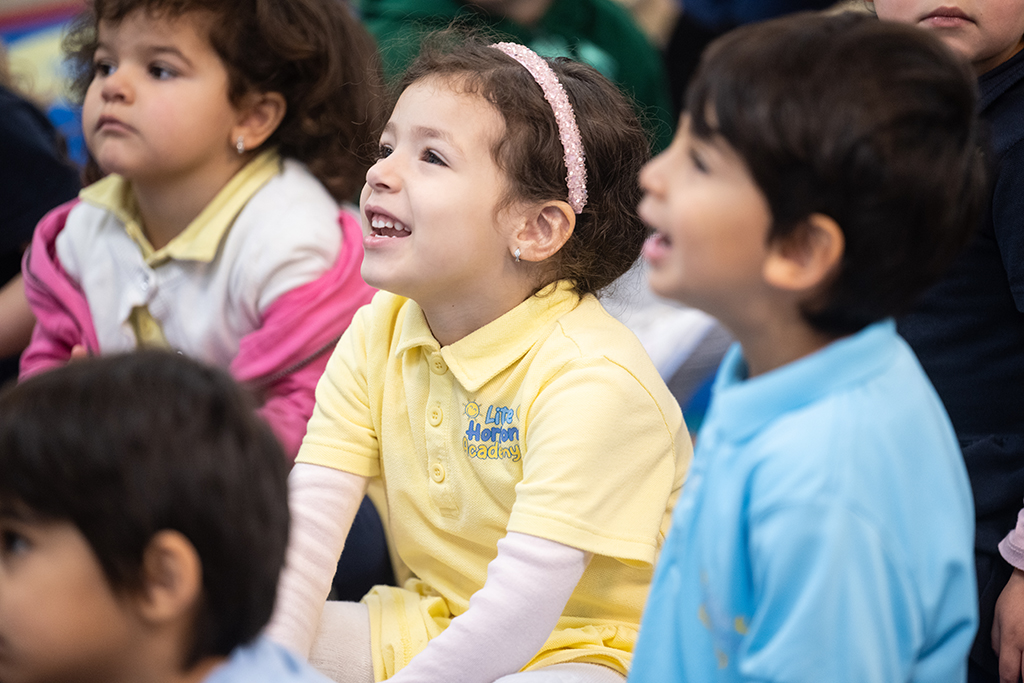
Resources
-
Download
-
Download
-
Download
-
Download
-
Download
-
Download
Family Portal
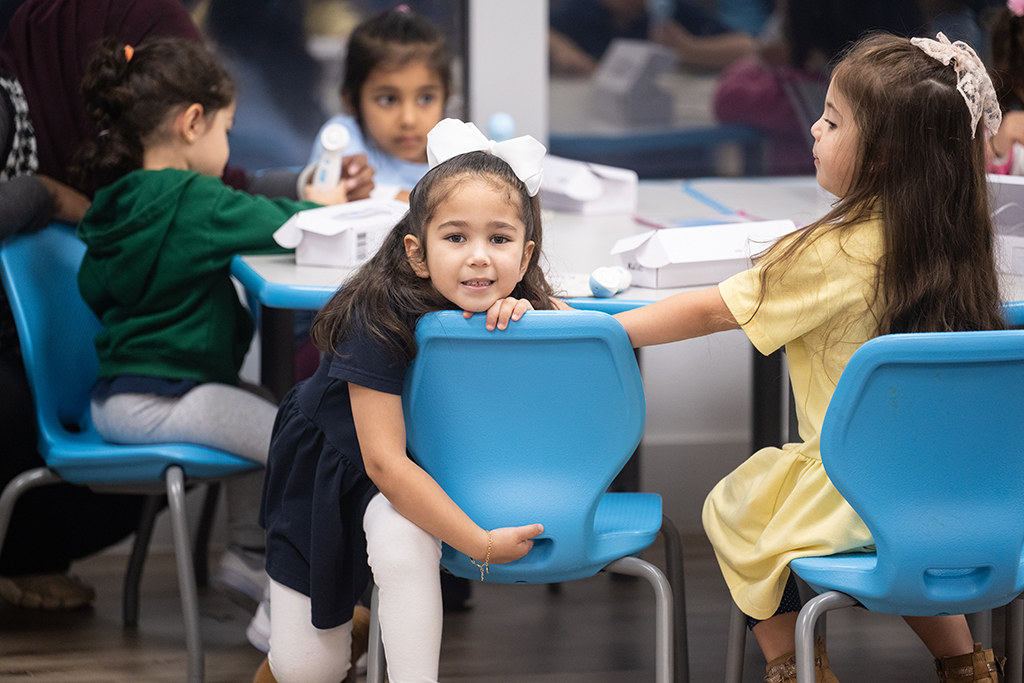
Sycamore Portal
To facilitate a seamless connection between you and the school, we are pleased to provide you with access to our School Information System, Sycamore.
Through Sycamore, you will be able to access your child’s attendance records, report cards, class schedules, assignments, tuition and fees, and more. This platform will serve as a central hub for all school-related information, making it easier for you to stay engaged and informed about your child’s educational journey.
FAQ
Where is LHA located?
Your Subtitle Goes Here
2950 N Shiloh Road Garland, Texas 75044
Which grades does LHA serve?
Your Subtitle Goes Here
Prekindergarten 1 (Age 3), Prekindergarten 2 (age 4), Kindergarten (age 5)
Is this a new program?
Your Subtitle Goes Here
The Preschool is not new. It has operated under BHA since 1989. However the facility has been newly remodeled and the preschool will operate under a new name and facility starting August 2023.
Is LHA an accredited preschool?
Your Subtitle Goes Here
LHA is seeking accreditation and has applied for Early Learning Candidacy through Cognia.
How will the teacher-student ratios be implemented in the center?
Your Subtitle Goes Here
Age 3 = 1:15
